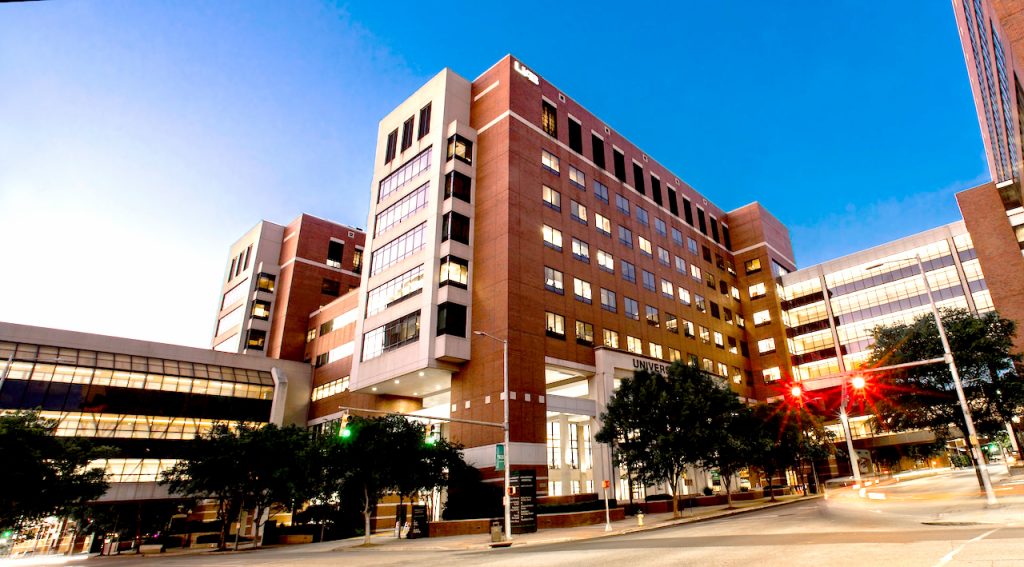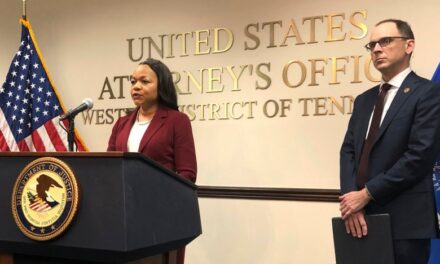The families of five men who died in Alabama prisons are suing the prison system and the world-renowned UAB medical center, arguing that the state’s biggest hospital is stealing organs from inmates after conducting autopsies.
The various lawsuits were filed in state court last week by three Alabama lawyers.
The families say their loved ones were serving time at either Limestone Correctional Facility or The Hamilton Aged and Infirmed Center when they died. The inmates each died within the past several years, and each had their autopsies conducted by UAB. Following their autopsies, the separate lawsuits allege, the inmates’ bodies were sent to funeral homes, where funeral directors discovered they were missing their organs. One inmate was sent directly for a private autopsy, where a pathologist made the same discovery.
The lawsuits each allege that the university took, and kept, inmates’ organs without consent of next-of-kin.
All people who die in custody have an autopsy, multiple prison officials testified in a federal court hearing earlier this year. Some of those autopsies are done at UAB, while the rest are conducted at the state level by the Alabama Department of Forensic Sciences.
None of the five families gave UAB permission to keep the organs, the lawsuits state.
A representative from UAB released a statement Thursday afternoon in response to the suits. The spokesperson said the institution is “in compliance with laws governing autopsies; our protocols require documented consent under the law, which includes consent for disposition of organs removed within the clinical standard necessary to determine a cause of death.”
“UAB only conducts autopsies for incarcerated individuals after the ADOC certifies that the autopsy has been properly authorized by an appropriate legal representative of the deceased. A panel of medical ethicists reviewed and endorsed our protocols regarding autopsies conducted for incarcerated persons,” the statement said.
The families of Arthur Olen Stapler, Jim William Kennedy, Anthony Perez Brackins, Kelvin Lamar Moore, and Charles Singleton are each suing the Alabama Department of Corrections, the University of Alabama system which operates the University of Alabama at Birmingham and its medical school, and other various people associated with those institutions.
All families say they tried contacting UAB’s Pathology Department after they realized the organs were missing, but were met with different answers as to why the organs were retained.
Two of the families got their loved ones’ organs back from UAB.
The family of Kelvin Moore, who died last summer, said they picked up a “sealed red bag with a container inside that (UAB) claimed contained Kelvin’s organs.” That happened after a supervisor in the pathology department told them, according to the lawsuit, it was the UAB policy “not to return organs to families after an autopsy.”
A private pathologist, who was hired by the family of Arthur Olen Stapler, got back some of Stapler’s organs from UAB—but not all.
The flurry of lawsuits comes after another former prisoner’s family sued in federal court to say their loved one, Brandon Clay Dotson, was returned missing his heart. No one has said where the heart is.
Dotson was found dead at Ventress Correctional Facility on November 16. The 43-year old’s family members — his mother, daughter and brother — claim in a federal lawsuit that they spent days trying to obtain his body. Once they did receive his body on Nov. 21., the family hired a private pathologist to do a second autopsy on the body. That doctor, Dr. Boris Datnow, discovered during his exam that Dotson’s body was missing his heart.
Lawyers for the prison system said that Dotson’s heart was inside his body when it left the facility, and they do not have the heart. Following his death, the inmate’s body was taken to the Alabama Department of Forensic Sciences for an autopsy.
At a hearing in federal court earlier this year, the director of the Alabama Department of Forensic Sciences said he hadn’t reviewed Dotson’s particular case file and couldn’t answer any questions about Dotson specifically.
The family of Charles Singleton filed a statement in Dotson’s case, and are part of the new batch of lawsuits filed in state court. Singleton, 74, was incarcerated at the Hamilton Aged and Infirmed prison and died at a Tennessee hospital in 2021. His daughter said in a sworn statement that following his death, Singleton’s body was taken to UAB for an autopsy. After the autopsy and when his body was sent to a Pell City funeral home, the funeral director found that Singleton was missing his brain and other organs.
Singleton’s daughter called UAB, and was told “that such organ removal was standard practice and suggested it was legally permissible,” said the new lawsuit.
The family of Anthony Perez Brackins said in their lawsuit that when they got in touch with UAB, the university told them it was “‘standard practice’ to retain organs at the conclusion of an autopsy.”
When the family told UAB they wanted to bury Brackins with all of his body parts, the UAB representative responded, according to the lawsuit, it was “too late now.”
A spokesperson from UAB sent a lengthy statement to AL.com earlier this year, saying the university doesn’t comment on “pending or threatened litigation,” but added that UAB “only conducts autopsies after obtaining consent or authorization from the appropriate state official.”
For inmate autopsies, UAB said, the department is responsible for “obtaining proper authorizations from the appropriate legal representative of the deceased.”
“The authorization forms not only provide permission for the autopsy, but also specifically include consent for the removal of organs or tissues for diagnostic or other testing including final disposition,” said the spokesperson. “Nevertheless, UAB can say that it does not harvest organs from bodies of inmates for research as has been reported in media reports.”
Alabama law says a medical examiner “shall notify the next of kin, through the appropriate law enforcement agency, when retaining a deceased person’s entire organ or organs for additional testing that is required to determine identification or the cause or manner of death.”
The law goes on to say that a medical examiner cannot retain a “deceased person’s entire organ or organs for research or any other purpose not in conjunction with a determination of identification or cause or manner of death without notification to, and approval by, the appropriate next of kin.”
The prison system and UAB have an agreement for UAB to perform autopsies as an independent contractor. That agreement was filed as an exhibit in the new lawsuits. According to that document, the prison system pays $2,200 per autopsy and $100 per toxicology test.
According to the lawsuit, UAB Division of Autopsy publications from 2006 to 2015 show that 23% of their yearly income comes from Department of Corrections autopsies, and 29% comes from Alabama Department of Forensic Sciences.
The prison system has previously said the department “does not authorize or perform autopsies,” and the ADOC facilities have “zero surgical capabilities.”
While the new lawsuits don’t say what happened to the organs, it mentions an incident several years ago at the medical school. In 2018, a group of UAB medical students were concerned about the body parts and tissues they were using as part of their training that had come from people who died in prison, according to the lawsuit, and took their concerns to an ethics oversight committee.
Several of those UAB students later appeared before the committee and were told that the removal of organs was part of the process for autopsies performed on prisoners. That panel also emphasized that the organs would benefit future doctors’ training and if they weren’t used, would just be thrown away.
“Thus, it was a position of the ethics committee that the autopsy process and the teaching uses of specimens obtained through the autopsy on incarcerated individuals in the current fashion would be ethically permissible,” said the lawsuits.











